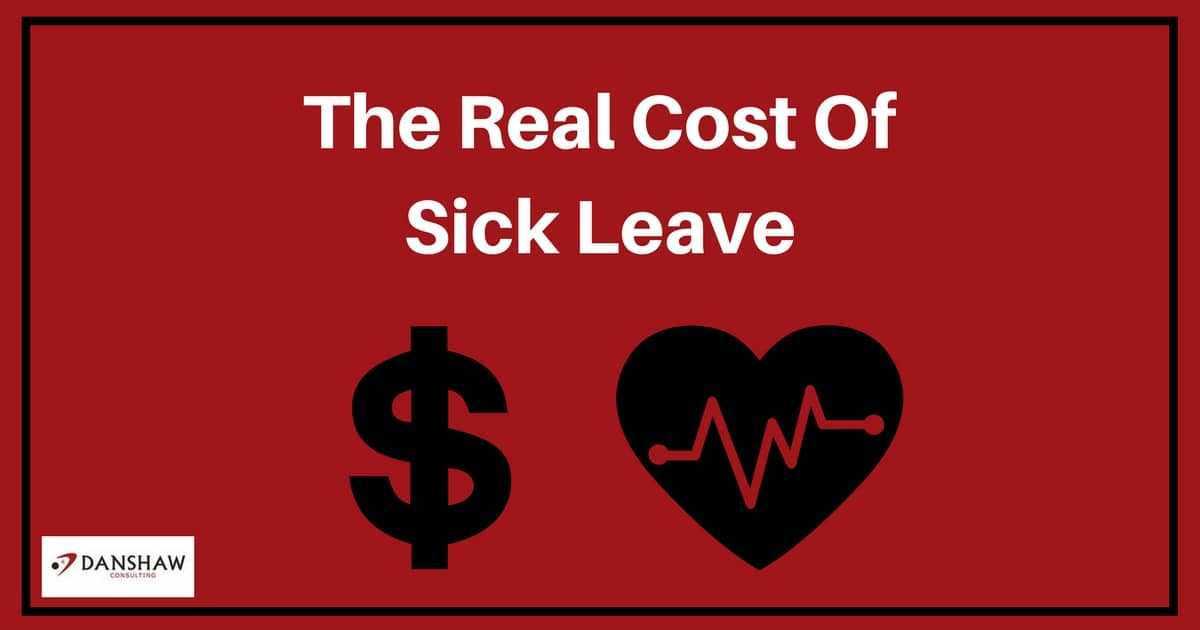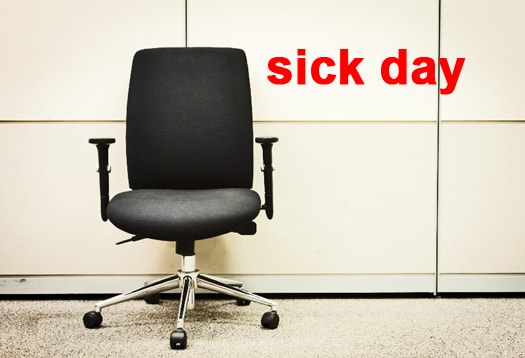The Real Cost Of Sick Leave

The Real Cost Of Sick Leave
In light of South Africa’s current economic state, employers are increasingly facing greater challenges just in order to survive in the market place.
South Africa is a predominantly labour-intensive country and therefore it is only natural to assume that the highest expense incurred by most employers is labour.
One facet of labour where employers may be incurring unnecessary costs, is sick leave.

Most employers accept medical certificates at face value and pay their employees for time they did not or, according to the medical certificate, could not work.
The reality, however, is that a large number of employers may actually be paying for sick leave to which the employee is not necessarily entitled.
This document, which will teach you all the tips and tricks employees might use to try and claim invalid sick leave, should prove useful to employers trying to determine whether or not they are obligated to pay an employee for sick leave.
1. Altered Medical Certificates
Altering a medical certificate is one of the oldest tricks in the book.
This is where employees change dates and numbers on their medical certificates in order to claim longer sick leave.
Employers who do not thoroughly examine a medical certificate may not notice that it has been altered.
To curb this problem, employers simply need to be more thorough in examining the medical certificate to determine whether the dates have been changed; and if in doubt, simply contact the medical practitioner who issued the medical certificate.
Requiring a hard copy as opposed to only an electronic copy of the medical certificate will also help you weed out unnecessary payment of sick leave to those employees with crazy Photoshop skills and a penchant for altering medical certificates.
Although employees do have a right to privacy when it comes to medical conditions, an employer may contact a medical practitioner to confirm whether the practitioner examined the employee and whether the dates reflected on the medical certificate are accurate.

2. Fraudulent Medical Certificates
Fraudulent medical certificates cost South Africa between R12 billion and R16 billion per year in lost productivity. This is as a result of “doctors” selling medical certificates to employees.
In January of this year, the Health Professions Council of South Africa (HPCSA) was investigating 19 cases where individuals were selling medical certificates in the Western Cape (80% of which were in Khayelitsha).
Employers who accept medical certificates at face value, may be paying sick leave for a certificate that was bought.
Employers can easily verify whether a medical certificate was issued by a registered medical practitioner, by searching for the medical practitioner on the HPCSA’s database.
Alternatively, complementary and alternative healthcare practitioners must be registered with the Allied Health Professions Council of South Africa (AHPCSA).
3. Clinic Attendance Notes
Employers should be wary of accepting clinic notes as medical certificates. The reason for this is that most of these clinic notes are simply attendance notes and are likely to be signed by a nurse.
The reasons why employers should not accept clinic notes are as follows:
- Sick leave entitlement is for employees who are “unable to work”. Attending a clinic does not mean the employee is unable to work, it simply means they attended the clinic. For an employee to be entitled to sick leave they need to be booked off by a medical practitioner as “unfit for duty”.
- Most clinic notes are signed by nurses. A nurse, although registered with a professional council, is not certified to diagnose patients and therefore cannot book off an employee.

4. Other Costs
Medical practitioners must adhere to a strict ethical code regarding the information that is reflected on a medical certificate.
This includes stating on the medical certificate whether the employee is booked off because the practitioner, in his/her professional opinion, deemed that the employee was unfit for duty.
Some medical certificates state “as informed by the patient”.
Employers do not have to accept medical certificates that state “as informed by the patient”, because the employee was not deemed unfit for duty by a medical practitioner.
Moreover, employers do not have to accept “medical reviews” and “check-ups” as valid medical certificates.
For an employee to be entitled to sick leave, the medical certificate needs to explicitly state that the employee is unfit for duty for a specified time and the medical certificate needs to be issued and signed by a registered practitioner.
Concluding Remarks
Sick leave is an expense for an employer, as they are paying an employee for work not done, and when an employee is absent from work it impacts the productivity of the business.
Consequently, employers should ensure that they are not paying for sick leave to which the employee may not be entitled.










